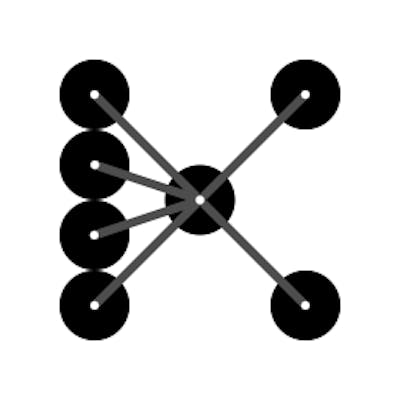Why?
I'm currently taking the Impact Theory University Mindset Coaching class, where Tom Bilyeu states success requires formulating a plan. Therefore, it makes complete sense for me (just like with Daniel Bourke's Masters' Degree) to create my own course outline conveying how I'll take myself from knowing nothing about AI to using it for large-scale change.
What?
This course should set up the reader with a fundamental understanding of machine/deep learning. Unlike with any one single course out there, this should encompass both the theoretical and practical aspects of AI (difficult, but necessary).
How?
Although I have a few highly theoretical courses down below, check out Machine Learning with Phil's math course breakdown. The following lists below can be shifted around, modified, and altered in any way shape or form for a coherent study plan. Just mix and match the materials with the highest appeal! Take note that multiple sources of similar content (different learning styles/intentions) have been kept in the list, so when one perspective doesn't make sense another will. Most importantly though, although top-down and bottom-up approaches to learning are equally powerful, Part 3 CANNOT BE SKIPPED, as it is the backbone for gaining tangible, real, unique and so irreplaceable experience!
Stages
Part 1 - Theoretical Understanding
Here the aim is to gain an overall holistic background of the basic architectures used by the libraries/frameworks extensively latter on. Here only vectorization libraries are provided.
Part 2 - Applied Knowledge
This will be a basic overview of how to use implementations of the prior concepts, to solidify one's understanding of how to use AI algorithms. Here there's an overall focus to demonstrating how machine-learning algorithms can be used in basic situations.
Part 3 - Realistic Projects
This is the useful part, to apply AI to real-world scenarios, exemplifying its use as a tool for solving complex problems. Despite learning resources being listed out here, these are easily replaceable (by other self-provided pet projects) when sections 1 and 2 supply adequate foundation knowledge. Although, there is a need to learn about more general data science topics, which may or may not be covered by part 2 (like cleaning/transforming data).
Topics?
I have a brief list down here, however, I'd like to mention this article which does a far better job at breaking down the different parts of AI.
Supervised Learning
- Linear Regression
- Gradient Descent
- Support Vector Machines
- Decision Trees
- K-Nearest Neighbors
- Feature Engineering
- Under/Over-Fitting and Generalization
- Hyperparameter Tuning
- Neural Networks
- Forward Propagation
- Deep Learning
- Back Propagation
- Convolutional Networks
- Recurrent Networks
Unsupervised Learning
- Logistic Regression
- Density Estimation
- DBSCAN and HDBSCAN
- Clustering
- K-Means
- Outlier/Anomaly Detection
- Ranking
Learning Materials
Courses
Theoretical Understanding
- Machine Learning (Coursera) - in Octave
- Foundations of Machine Learning (Bloomberg)
- Deep Learning from the Foundations (fast.ai)
- Learning From Data (edX)
Applied Knowledge:
- Neural Networks and Deep Learning (Coursera) - shorter course with TensorFlow
- Applied Machine Learning in Python (Coursers) - longer course teaching variety of libraries
- Practical Deep Learning for Coders (fast.ai) - longer course using Fast.AI library (extends PyTorch)
Books
Theoretical Understanding:
- The Hundred-Page Machine Learning Book - mostly maths
- Learning from Data - has accompanying MOOC above
- Grokking Deep Learning - pure Python
Applied Knowledge
- Hands-On Machine Learning with Scikit-Learn and TensorFlow - uses Scikit-Learn and TensorFlow
THANKS FOR READING!
Now that you've heard me ramble, I'd like to thank you for taking the time to read through my blog (or skipping to the end).

